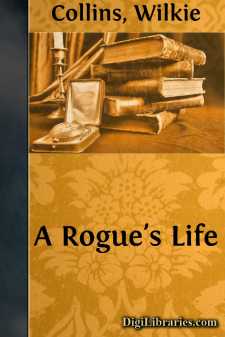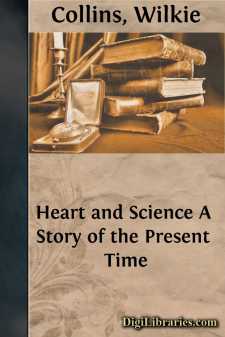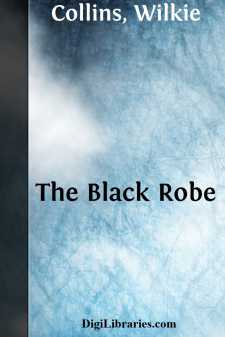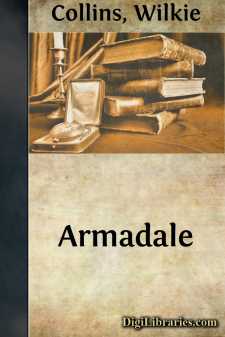Categories
- Antiques & Collectibles 13
- Architecture 36
- Art 48
- Bibles 22
- Biography & Autobiography 813
- Body, Mind & Spirit 142
- Business & Economics 28
- Children's Books 17
- Children's Fiction 14
- Computers 4
- Cooking 94
- Crafts & Hobbies 4
- Drama 346
- Education 46
- Family & Relationships 57
- Fiction 11829
- Games 19
- Gardening 17
- Health & Fitness 34
- History 1377
- House & Home 1
- Humor 147
- Juvenile Fiction 1873
- Juvenile Nonfiction 202
- Language Arts & Disciplines 88
- Law 16
- Literary Collections 686
- Literary Criticism 179
- Mathematics 13
- Medical 41
- Music 40
- Nature 179
- Non-Classifiable 1768
- Performing Arts 7
- Periodicals 1453
- Philosophy 64
- Photography 2
- Poetry 896
- Political Science 203
- Psychology 42
- Reference 154
- Religion 513
- Science 126
- Self-Help 84
- Social Science 81
- Sports & Recreation 34
- Study Aids 3
- Technology & Engineering 59
- Transportation 23
- Travel 463
- True Crime 29
Stories by English Authors: England
by: Wilkie Collins
Categories:
Description:
Excerpt
The 10:15 train glided from Paddington May 7, 1847. In the left compartment of a certain first-class carriage were four passengers; of these two were worth description. The lady had a smooth, white, delicate brow, strongly marked eyebrows, long lashes, eyes that seemed to change colour, and a good-sized, delicious mouth, with teeth as white as milk. A man could not see her nose for her eyes and mouth; her own sex could, and would have told us some nonsense about it. She wore an unpretending grayish dress, buttoned to the throat with lozenge-shaped buttons, and a Scottish shawl that agreeably evaded colour. She was like a duck, so tight her plain feathers fitted her, and there she sat, smooth, snug, and delicious, with a book in her hand and a soupcon of her wrist just visible as she held it. Her opposite neighbour was what I call a good style of man, the more to his credit since he belonged to a corporation that frequently turns out the worst imaginable style of young men. He was a cavalry officer, aged twenty-five. He had a moustache, but not a very repulsive one—not one of those subnasal pigtails on which soup is suspended like dew on a shrub; it was short, thick, and black as a coal. His teeth had not yet been turned by tobacco smoke to the colour of juice; his clothes did not stick to nor hang to him; he had an engaging smile, and, what I liked the dog for, his vanity, which was inordinate, was in its proper place, his heart, not in his face, jostling mine and other people's who have none; in a word, he was what one oftener hears of than meets—a young gentleman. He was conversing in an animated whisper with a companion, a fellow-officer; they were talking about what it is far better not to—women. Our friend clearly did not wish to be overheard; for he cast ever and anon a furtive glance at his fair vis-a-vis and lowered his voice. She seemed completely absorbed in her book, and that reassured him. At last the two soldiers came down to a whisper (the truth must be told); the one who got down at Slough, and was lost to posterity, bet ten pounds to three that he who was going down with us to Bath and immortality would not kiss either of the ladies opposite upon the road. "Done, done!" Now I am sorry a man I have hitherto praised should have lent himself, even in a whisper, to such a speculation; "but nobody is wise at all hours," not even when the clock is striking five and twenty, and you are to consider his profession, his good looks, and the temptation—ten to three.
After Slough the party was reduced to three. At Twylford one lady dropped her handkerchief; Captain Dolignan fell on it like a lamb; two or three words were interchanged on this occasion. At Reading the Marlborough of our tale made one of the safe investments of that day; he bought a "Times" and "Punch"—the latter full of steel-pen thrusts and woodcuts. Valour and beauty deigned to laugh at some inflamed humbug or other punctured by "Punch." Now laughing together thaws our human ice; long before Swindon it was a talking-match; at Swindon who so devoted as Captain Dolignan? He handed them out, he souped them, he tough-chickened them, he brandied and cochinealed one, and he brandied and burnt-sugared the other; on their return to the carriage one lady passed into the inner compartment to inspect a certain gentleman's seat on that side of the line.
Reader, had it been you or I, the beauty would have been the deserter, the average one would have stayed with us till all was blue, ourselves included; not more surely does our slice of bread and butter, when it escapes from our hand, revolve it ever so often, alight face downward on the carpet. But this was a bit of a fop, Adonis, dragoon, —so Venus remained in tete-a-tete with him. You have seen a dog meet an unknown female of his species; how handsome, how empresse, how expressive he becomes: such was Dolignan after Swindon, and, to do the dog justice, he got handsome and handsomer. And you have seen a cat conscious of approaching cream: such was Miss Haythorn; she became demurer and demurer. Presently our captain looked out of the window and laughed; this elicited an inquiring look from Miss Haythorn.
"We are only a mile from the Box Tunnel."
"Do you always laugh a mile from the Box Tunnel?" said the lady.
"Invariably."
"What for?"
"Why, hem! it is a gentleman's joke."
Captain Dolignan then recounted to Miss Haythorn the following:
"A lady and her husband sat together going through the Box Tunnel; there was one gentleman opposite; it was pitch-dark. After the tunnel the lady said, 'George, how absurd of you to salute me going through the tunnel!' 'I did no such thing.' 'You didn't?' 'No; why?' 'Because somehow I thought you did!'"
Here Captain Dolignan laughed and endeavoured to lead his companion to laugh, but it was not to be done. The train entered the tunnel.
Miss Haythorn. Ah!
Dolignan. What is the matter?
Miss Haythorn. I am frightened.
Dolignan (moving to her side). Pray do not be alarmed; I am near you.
Miss Haythorn. You are near me—very near me indeed, Captain Dolignan.
Dolignan. You know my name?
Miss Haythorn. I heard you mention it. I wish we were out of this dark place.
Dolignan. I could be content to spend hours here reassuring you, my dear lady.
Miss Haythorn. Nonsense!
Dolignan. Pweep! (Grave reader, do not put our lips to the next pretty creature you meet, or will understand what this means.)
Miss Haythorn. Ee! Ee!
Friend. What is the matter?
Miss Haythorn. Open the door! Open the door...!












